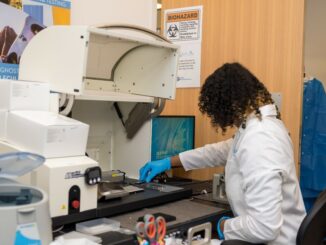New research published in Proceedings of the National Academy of Sciences (PNAS) finds that prolonged and/or repeated exposure to gamma-aminobutyric acid (GABA) anesthetic agents (sevoflurane, propofol) for infants in the first two months of life resulted in an accelerated maturation of brain electrical activity patterns evoked by visual stimuli when recorded at 2–5 months of age, compared to infants who did not have early general anesthesia exposure.
This article was originally published on MedicalXpress.com




